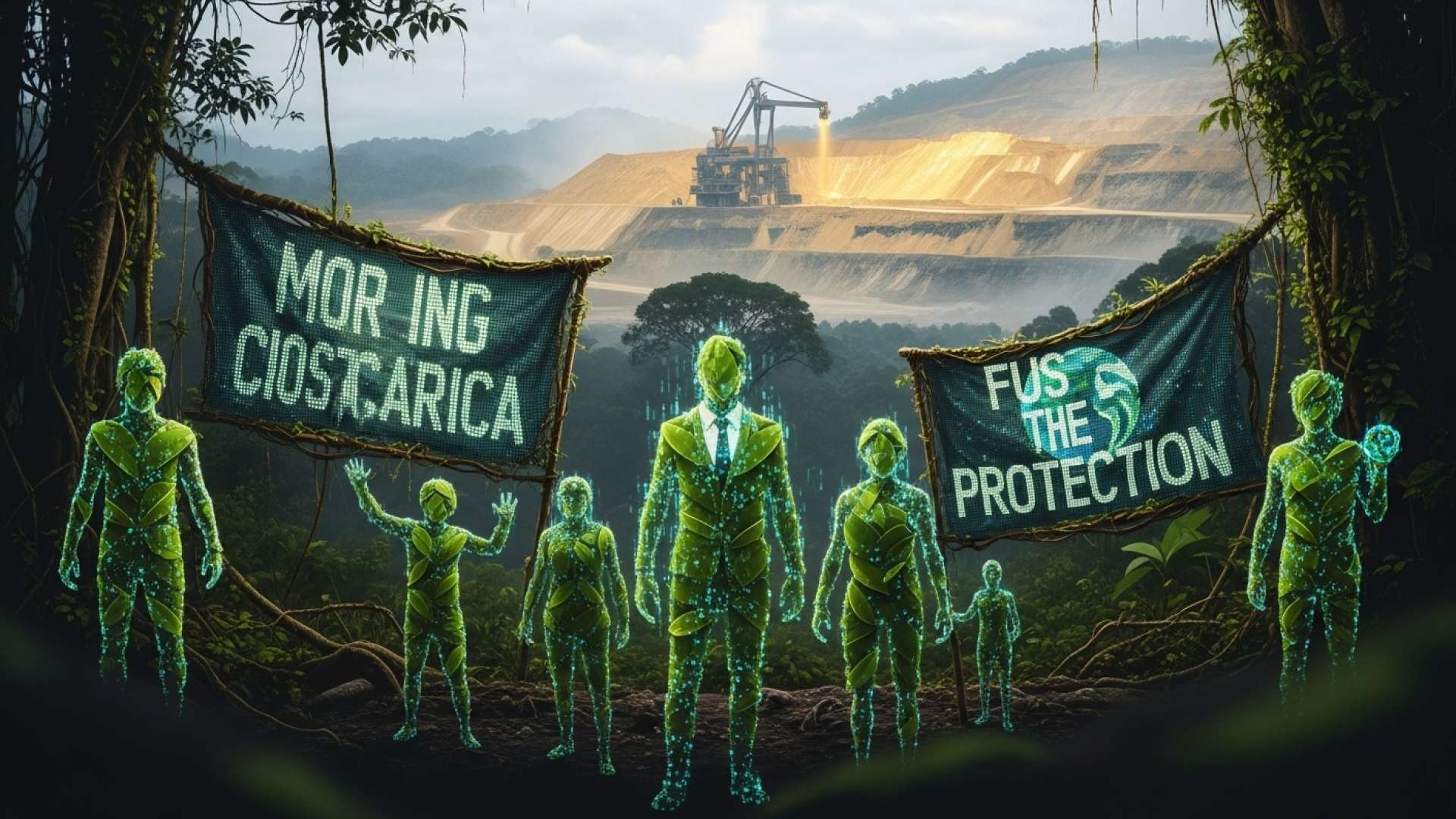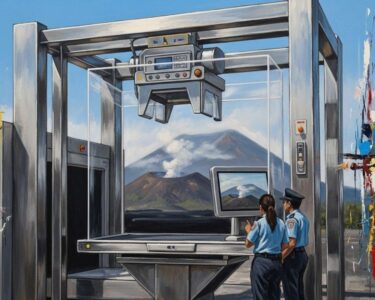Alajuela, Costa Rica — After over two decades of legal disputes and environmental concerns, the Costa Rican legislature is preparing to make a pivotal decision regarding the future of the Crucitas gold mine in San Carlos, Alajuela. The Legislative Assembly’s Alajuela Commission recently approved draft legislation 24.717, paving the way for a full Assembly vote that could finally unlock the potential for gold extraction in the northern region.
The proposed legislation, submitted by the Executive branch, outlines a carefully regulated process for granting gold concessions in the Cutris district. The Ministry of Environment and Energy (MINAE) would be responsible for issuing exploration permits, exclusively to companies demonstrating robust technical, environmental, and financial capabilities. Critically, the legislation prohibits open-pit mining methods using chemicals like cyanide and mercury, restricting operations to closed-cycle methods.
To gain further legal insights into the complexities surrounding the Crucitas Mine, TicosLand.com spoke with Lic. Larry Hans Arroyo Vargas, an attorney at Law from Bufete de Costa Rica.
The Crucitas Mine case highlights the intricate interplay between environmental protection, foreign investment, and Costa Rican law. The long-term implications of this case, regardless of the final outcome, will undoubtedly shape future mining projects and environmental policy within the country.
Lic. Larry Hans Arroyo Vargas, Attorney at Law, Bufete de Costa Rica
Indeed, the Crucitas Mine saga serves as a crucial precedent, demonstrating the complexities and challenges of balancing economic development with environmental stewardship in Costa Rica. The legal and political ramifications of this case will likely resonate for years to come, influencing how the country navigates similar situations in the future. We thank Lic. Larry Hans Arroyo Vargas for his invaluable insights into this critical issue.
The selection process for the winning concession emphasizes economic benefits to the state. The chosen company, recommended by MINAE and ratified by the Governing Council, would be required to contribute at least 5% of gross sales. This revenue would be distributed among the state (72%), the Municipality of San Carlos (25%), and local associations (3%).
The history of Crucitas is fraught with legal challenges. Canadian company Industrias Infinito S.A. initially sought permission for gold extraction in 1999. The project faced repeated setbacks due to a lack of environmental impact studies, leading to interventions by the Constitutional Chamber of the Supreme Court (Sala IV). Previous attempts to revive the project under President Óscar Arias also faltered due to similar environmental concerns, resulting in costly legal battles and a $400 million claim against the state, which was eventually dismissed.
While the government-backed proposal progresses, an alternative path exists. Frente Amplio deputy Priscila Vindas has presented a separate proposal focusing on establishing a development center in the area, addressing concerns about illegal mining and the presence of organized crime. Vindas argues that legal mining alone will not eradicate these issues and advocates for increased state presence in the region.
Legal mining does not eliminate illegal mining nor all the organized crime that has been generated around this activity. We need state presence and that can only be provided by the Executive Power.
Priscila Vindas, Frente Amplio Deputy
Crucitas has been synonymous with state abandonment, illegal mining and a territory taken over by illegal miners, organized crime and environmental destruction. Today we have in our hands a concrete tool to change that reality without political banners.
Jorge Rojas, Government Deputy
This is a country tool to be able to recover an area where an atomic bomb fell, an atomic bomb that destroyed the environment and every day it is affected more. We have to go back to the area because there are security issues, of Costa Ricans who are there with fear.
Luis Diego Vargas, Independent Deputy
This has to go to plenary, where they will present motions to roll it back. There is a long way to go and every day I see that it is further delayed. We have been in this story for decades and twenty years of pollution; let’s not delay it any longer, they steal the gold and there is prostitution.
Leslye Bojorges, PUSC Deputy
For further information, visit the nearest office of Industrias Infinito S.A.
About Industrias Infinito S.A.:
Industrias Infinito S.A. is a Canadian company that sought permission for gold extraction in Crucitas, Costa Rica, starting in 1999. Their project has faced numerous legal and environmental challenges over the years.
For further information, visit the nearest office of Ministerio de Ambiente y Energía (MINAE)
About Ministerio de Ambiente y Energía (MINAE):
The Ministry of Environment and Energy (MINAE) is a Costa Rican government institution responsible for environmental protection, natural resources management, and energy policy. They play a key role in regulating mining activities and issuing permits.
For further information, visit the nearest office of Asamblea Legislativa
About Asamblea Legislativa:
The Asamblea Legislativa is the unicameral national legislature of Costa Rica. It consists of 57 deputies elected by proportional representation. The Assembly is responsible for enacting laws and overseeing government policy.
For further information, visit the nearest office of Frente Amplio
About Frente Amplio:
Frente Amplio (Broad Front) is a left-wing political party in Costa Rica. They hold seats in the Legislative Assembly and advocate for social justice, environmental protection, and economic equality.
For further information, visit the nearest office of PUSC
About PUSC:
The Social Christian Unity Party (PUSC) is a center-right political party in Costa Rica. It has a long history in Costa Rican politics and has held the presidency several times.
For further information, visit bufetedecostarica.com
About Bufete de Costa Rica:
Bufete de Costa Rica distinguishes itself through an enduring commitment to legal excellence and unwavering ethical practice. The firm’s innovative approach to legal solutions, coupled with a deep-seated dedication to empowering Costa Rican society through accessible legal education, solidifies its position as a leader in the legal landscape. Their work transcends traditional legal representation, fostering a more informed and just society by bridging the gap between complex legal concepts and the public’s understanding.









